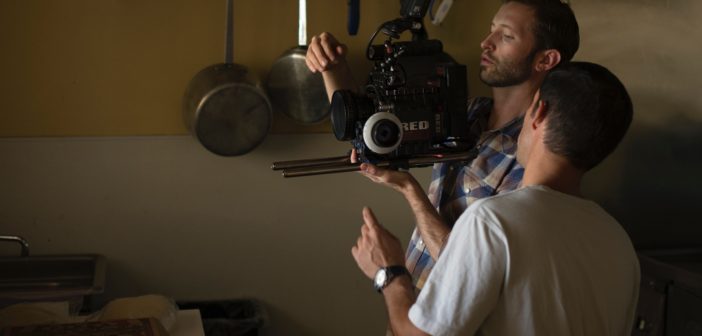A Movie Worth Seeing
A person with Alzheimer’s disease and how to provide care for them at home is a challenge for any family. It is a central theme in the Iranian movie, A Separation. The story centers around 3 generations of a family living together in an apartment: the grandfather who has Alzheimer’s, his son Nader and daughter in law, Simin and their middle school age daughter, Termeh. The movie opens with the the son and daughter in law facing a judge at the daughter in law’s request for a divorce. She wants the family to move out of the country, but Nader refuses to move his father and insists that they stay in Iran to care for him. Denied her divorce, the daughter in law moves out of the apartment to live with her family. Nader is under pressure to care for his father alone and continue to go to work and under pressure makes a quick decision to hire an unfamiliar caregiver, Razieh. Cultural differences between the family and the caregiver, poor communication and the caregiver’s personal situation and stress all combine for chaos.
A Separation touches on many issues for a family caring for a frail elder. The pressure and strain on family caregivers and their marriage are first to be examined. The confusion, loyalty and fears of the granddaughter are beautifully portrayed by the young actor Sarina Farhadi, daughter of the movie’s writer and director, Asghar Farhadi. The caregiver’s conflict includes caring for a old man when she has religious constrictions on what type of care she can provide to a member of the opposite sex, and at the same time Razieh must deal with her own family’s complex problems and health. An American audience familiar with the trials of caregiving will recognize and relate to these issues, but watching this movie also provides a fascinating view into another culture’s interpretation of care. The son is the primary caregiver and advocate for his vulnerable father (a convincing and touching performance by the actor Ali-Asghar Shabazi). This movie supports the notion that a male family member can be the best family caregiver. It also realistically shows that male or female, the role of caregiver puts any person in unexpected and possibly life changing situations at a moment’s notice.
A Book- Sappy and Maudlin, But A View of Another Culture
Though the title “Please Look After Mom” gives an accurate sense of the melodramatic tone of this novel by South Korean author Kyung-Sook Shin, it does have some merits. For those of us who are caring for family members of elders with dementia, you will at least get reassurance that you are doing a better job than the family members in this story! The premise of the novel is that an elderly couple travels from their rural village to visit their adult children and grandchildren in Seoul. The elderly mother, whose given name is So-Nyo but is mostly referred to throughout the book as Mom, gets separated from her husband in the busy train station and goes missing.
As the structure of the book follows the thoughts of individual family members (the eldest daughter, the eldest son and the husband), the reader learns that absolutely no one in the family has really paid attention to Mom in decades. The tell tale signs of advancing dementia that Mom is experiencing are routinely denied by everyone in the family or considered someone else’s responsibility. As time goes on and Mom is not found, each family member must suffer their own private hell of guilt for their lack of concern for the mother.
Some may enjoy this unending guilt trip, but it’s not for everyone. However, other aspects of the book are much stronger and more interesting. The depiction of multiple generations of this South Korean family is enlightening. The marriage of So-Nyo and her husband begins just in the aftermath of the Korean War. How they survive in their rural village in that frightening post war environment and start their family is largely due to So-Nyo’s incredible drive and unending farm labor. The descriptions of the life of farming, food scarcity and the desperation to make sure that each child is fed, are remarkable. The most enjoyable character is Mom. The reader understands her relentlessness to keep her family going and to provide each child with an education that she did not have. Her grit and determination drive the story.The picture of contrast between rural and city culture in South Korea and how the two generations make a life in a changing world are also a real value of this book.
If, however, you are interested in a description of a family dealing with an elder with dementia, you will not find it in “Please Look After Mom.” Indeed, this novel serves more as a cautionary tale than as an inspiration.

